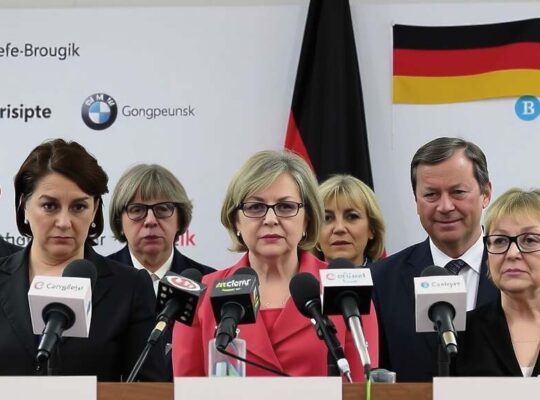A deeply troubling picture of morale and strategic confidence has emerged within Deutsche Bahn (DB), according to the results of a recently released internal survey. The “Kulturbarometer” compiled between September 9th and October 2nd – prior to the assumption of leadership by new CEO Evelyn Palla – reveals a precipitous decline in employee satisfaction, raising serious questions about the effectiveness of recent management approaches and the future trajectory of Germany’s national rail operator.
The survey, which involved approximately 13,000 employees, highlights that a mere 31 percent of DB’s workforce express optimism regarding the company’s future, a dramatic fall from 56 percent just three years ago. Crucially, faith in former CEO Richard Lutz’s pivotal strategies – “S3” and the “Starke Schiene” initiative – has also waned considerably. Only 27 percent believe in the success of “Starke Schiene” indicative of a growing disconnect between leadership intentions and employee perception.
The survey paints a stark picture of what DB is labeling the “distancing of employees from the company”. The term “Eisenbahnerstolz” or “Railroad Pride” has plummeted to a historic low of 57 percent, signifying a significant erosion of institutional loyalty and a questioning of the company’s values.
While Personnel Director Martin Seiler acknowledged that the results were “not particularly pleasing” he also stated they underscore a widespread desire within DB for fundamental change. This sentiment is powerfully echoed in the findings; 70 percent of all respondents advocate for a complete reboot of the company’s operational and strategic approach.
Perhaps the most concerning aspect emerges from the responses of DB’s leadership tier. A staggering 83 percent of managers believe a fresh start is needed, with a staggering 95 percent of those at the very top leadership level expressing a similar sentiment. The shift is palpable: pessimism regarding the company’s direction now outweighs optimism, with only 31 percent of top leaders looking positively towards the future – a notable decline from 38 percent in the previous year. This internal divergence signals a potentially destabilizing dynamic, suggesting leadership may have lost the confidence of its own ranks.
The findings present a considerable challenge for Evelyn Palla as she assumes the role of CEO. Rebuilding employee morale, earning back trust within the workforce and redefining DB’s strategic direction are now paramount to ensure the viability of the national rail infrastructure and prevent further erosion of public confidence. The survey serves as a critical litmus test for Palla’s leadership and poses fundamental questions about the long-term sustainability of DB’s current operational model.












